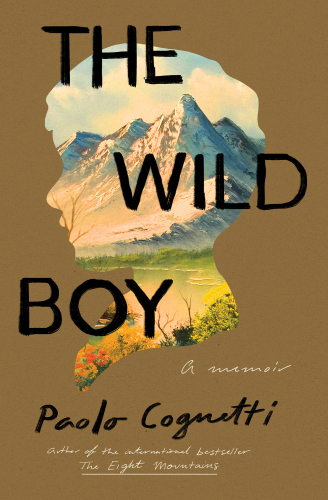
The Wild Boy
A Memoir
کتاب های مرتبط
- اطلاعات
- نقد و بررسی
- دیدگاه کاربران
نقد و بررسی

May 13, 2019
In this rich narrative, novelist Cognetti (The Eight Mountains) tells of leaving Milan for several months to seek refuge in the Alpine village of Fontane, near his family’s longtime summer retreat. Feeling “drained, disoriented, and disillusioned,” Cognetti arrived hoping to reclaim his drive to write and his “wild boy” soul. As he read Thoreau, worked in his garden, and rock climbed, Cognetti reckoned with the many ironies of his connection to the countryside, including his fear of the night. He befriended Remigio, his landlord and a devotee of Sartre and Camus, and Gabrielle, a shepherd of simple means and great passions, whose companionship helped Cognetti appreciate the world around him. Over the months, he came to realize that rather than trying to find his inner “wild boy,” he’d actually been running from himself (“Everywhere I looked, I found myself reflected: distorted, grotesque, multiplied an infinite number of times”). By the book’s end, it’s clear that his malaise has been lifted, having formed friendships and gained a greater sense of self. Cognetti’s beautifully written, thoughtful memoir will resonate with readers searching for escape to a simpler life.

May 15, 2019
A young man heads for the hills to experience solitude. Cognetti follows up his international bestselling novel, The Eight Mountains (2018), with this amiable and pleasant but lackluster memoir. At the age of 30, writes the author, he was "drained, disoriented, and disillusioned," and he yearned to "recover an old and deep-seated [self] I felt that I had lost." Inspired by Jon Krakauer's Into the Wild and Thoreau--"I went to the woods because I wished to live deliberately..."--Cognetti set off for the Alps in search of his lost, "wild" boy-ness. However, readers take note: There will be no exciting near-death experiences here, just reflective thoughts. The author rented a small hut in the lower Alps, some 6,000 feet above sea level in the Valle d'Aosta. He tells his story chronologically, from winter, the "season of sleep," to the "solitude and observation" of spring, to summer, the "season of friendship and adventure," to autumn, the "season of writing." After settling, Cognetti began to explore, but the landscape felt "artificial." There's "no such thing as wilderness in the Alps, only a long history of human presence that is experiencing today an era of abandonment." After dealing with some mid-May snow, the author encountered his first guest, his landlord, Remigio. As the snow melted, Cognetti chopped wood and planted a vegetable garden. He observed the wildlife around him, including eagles, hares, marmots, chamois, and roe deer. When the shepherds returned to their pastures with cows, he made new friends. Eventually, he realized he "wasn't cut out to be a hermit." We read about his walks, preparing meals, enjoying wine; and still, "I had not learned how to be alone." In autumn, he began writing in his notebook and hid some notes "in broken rocks, in the split bark of trees, so that my words would still be there after I'd gone." A rather dull memoir from a gifted writer.
COPYRIGHT(2019) Kirkus Reviews, ALL RIGHTS RESERVED.

























دیدگاه کاربران